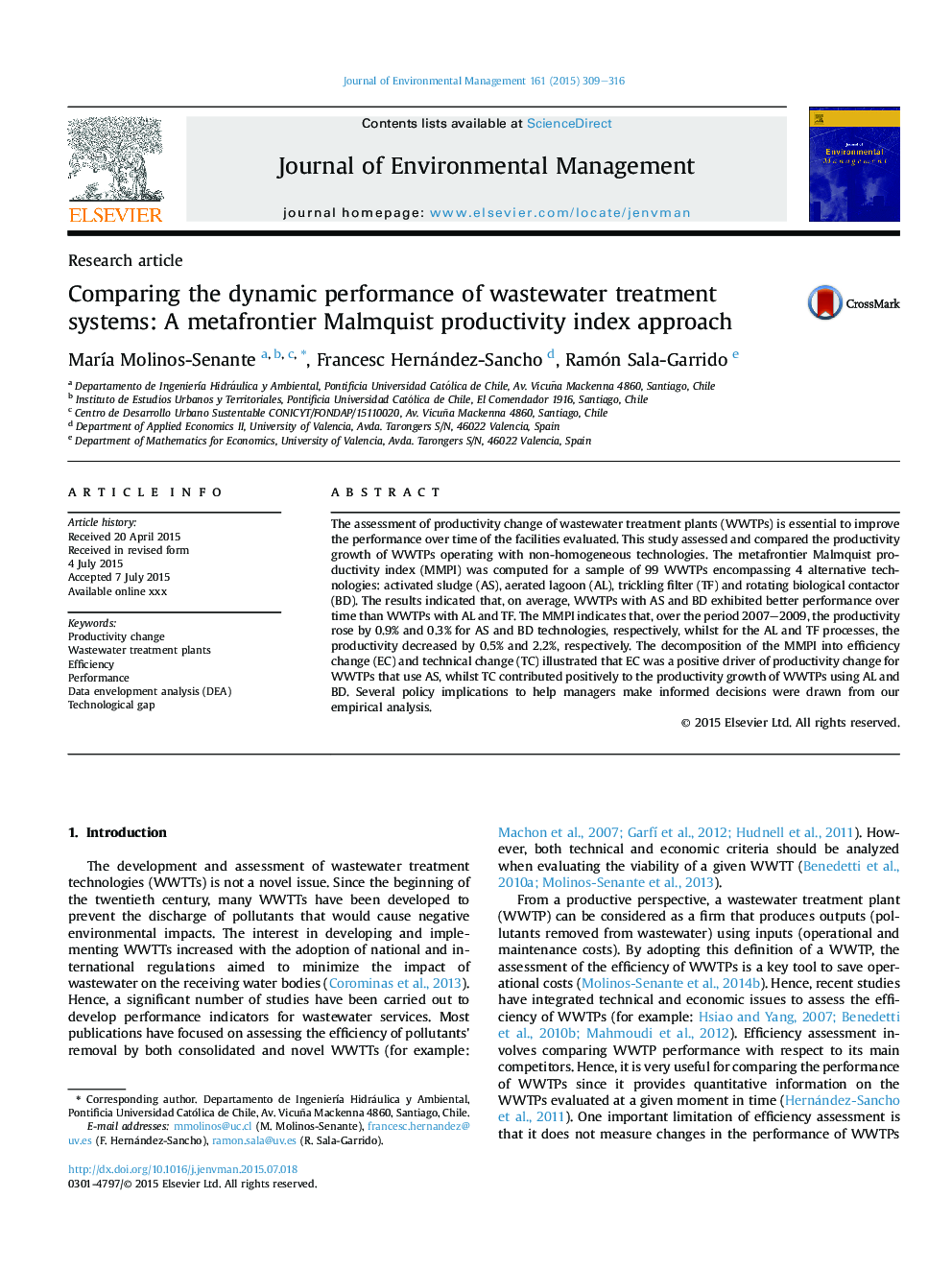| Article ID | Journal | Published Year | Pages | File Type |
|---|---|---|---|---|
| 7481820 | Journal of Environmental Management | 2015 | 8 Pages |
Abstract
The assessment of productivity change of wastewater treatment plants (WWTPs) is essential to improve the performance over time of the facilities evaluated. This study assessed and compared the productivity growth of WWTPs operating with non-homogeneous technologies. The metafrontier Malmquist productivity index (MMPI) was computed for a sample of 99 WWTPs encompassing 4 alternative technologies: activated sludge (AS), aerated lagoon (AL), trickling filter (TF) and rotating biological contactor (BD). The results indicated that, on average, WWTPs with AS and BD exhibited better performance over time than WWTPs with AL and TF. The MMPI indicates that, over the period 2007-2009, the productivity rose by 0.9% and 0.3% for AS and BD technologies, respectively, whilst for the AL and TF processes, the productivity decreased by 0.5% and 2.2%, respectively. The decomposition of the MMPI into efficiency change (EC) and technical change (TC) illustrated that EC was a positive driver of productivity change for WWTPs that use AS, whilst TC contributed positively to the productivity growth of WWTPs using AL and BD. Several policy implications to help managers make informed decisions were drawn from our empirical analysis.
Keywords
Related Topics
Physical Sciences and Engineering
Energy
Renewable Energy, Sustainability and the Environment
Authors
MarÃa Molinos-Senante, Francesc Hernández-Sancho, Ramón Sala-Garrido,
